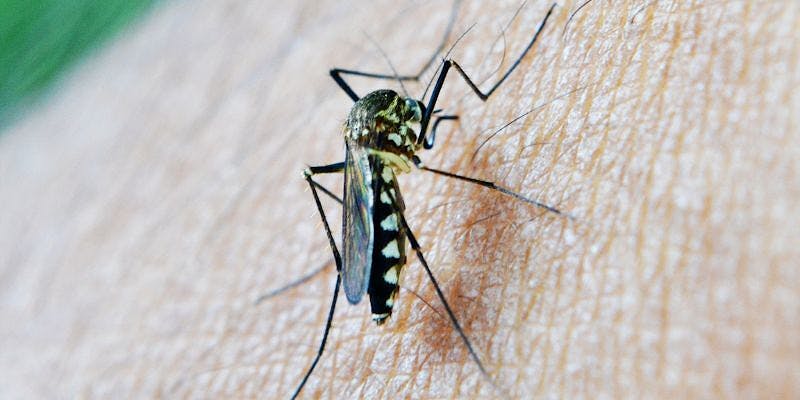
Travelling to far flung countries is the adventure of a lifetime. Tropical countries are beautiful, but they can also be home to a colourful array of creepy crawlies, and insect bites can be a problem.
Mosquito bites are the biggest threat to travellers in many tropical and sub tropical countries where malaria is prevalent, and avoiding bites can be tricky. But there are simple steps you can take to keep the disease at bay:
- Before you travel, visit your doctor or travel clinic to discuss antimalarials
- Use an insect repellent containing at least 50% DEET on exposed skin and clothing. DEET can damage certain synthetic materials so be careful where you use it
- Apply insect repellent on top of sunscreen
- Wear long sleeves, long trousers and socks at dusk and twilight when the mosquitoes are out in force
- Sleep under a mosquito net that has been impregnated with permethrin
- Avoid camping near wetlands, the breeding ground of mosquitoes
- If you suspect you have contracted malaria, go to a hospital as soon as you can to receive treatment. Symptoms of malaria include fever, flu-like symptoms, diarrhoea and tiredness
- Keep taking your antimalarials when you get home as malaria could still be in your bloodstream
- You can contract malaria up to a year after you have returned home so keep an eye out for symptoms and tell your doctor you have been to a country that's prone to the disease
Mosquitoes spread malaria, some spiders and scorpions are poisonous, and ticks can carry Lyme disease. Many of the conditions are treatable, but the best course of action is to avoid being bitten in the first place.
If you are walking through the bush, wear closed toe shoes and long trousers to avoid tick bites. Whilst camping, check your sleeping bag before you go to bed for spiders and scorpions, and keep the tent zipped up at all times.
Symptoms of spider bites can vary, but often there will be a red line leading away from the bite. You might also experience flu like symptoms. If you think you have been bitten by a poisonous spider, visit the nearest hospital immediately.
Some insect bites can just cause mild skin aggravations such as itching and swelling. Taking antihistamines can counteract the irritation.
Before you travel, research your destination thoroughly to find out what insects and insect-borne diseases might pose a threat.
Don't let insects dissuade you from visiting a country, as it could stop you from experiencing some of the most beautiful and tropical destinations in the world.
